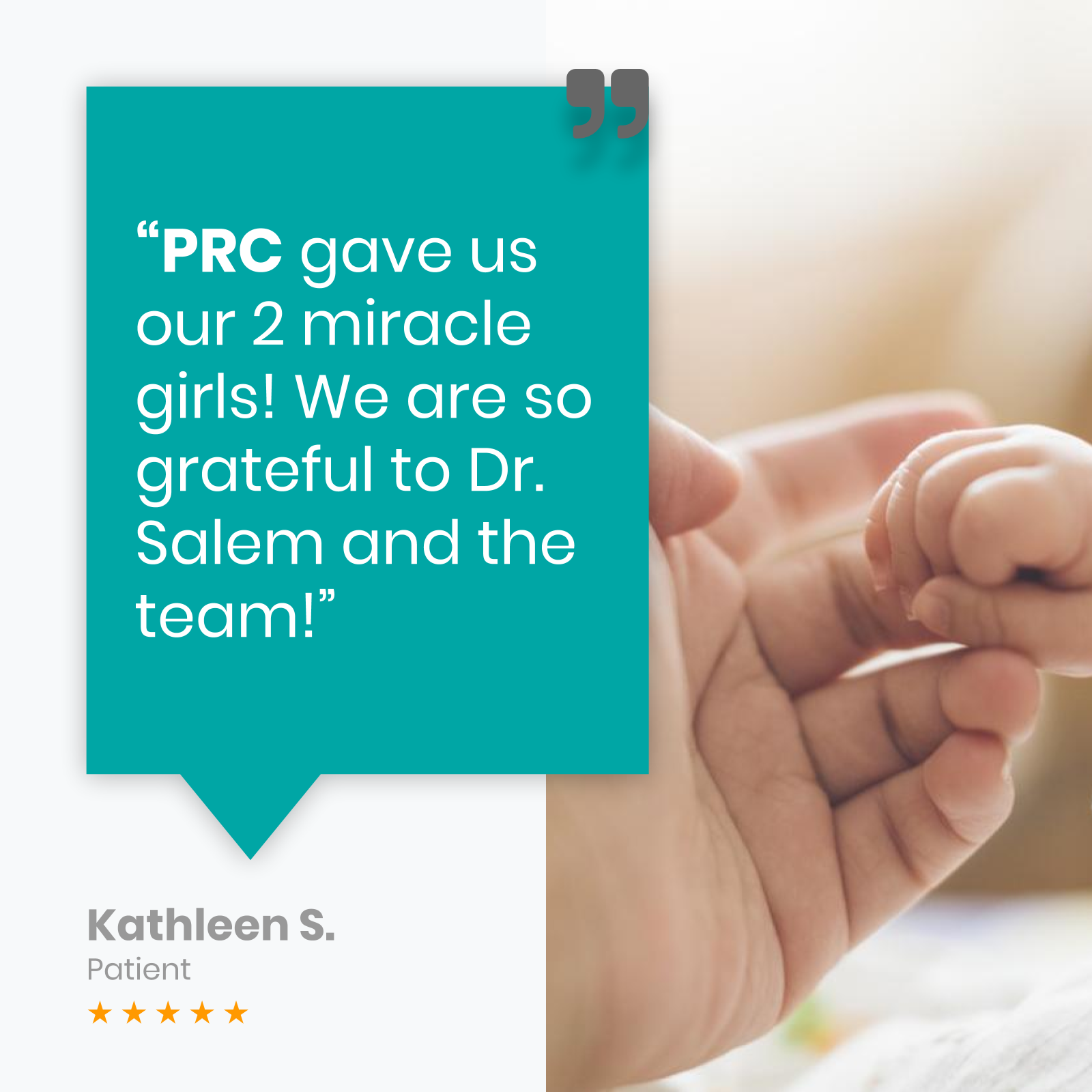Egg retrieval is a key step in the in vitro fertilization (IVF) process and plays a critical role in helping individuals and couples achieve pregnancy.
At Pacific Reproductive Center, we use advanced technology and experienced fertility specialists to provide a safe, personalized approach to egg retrieval.
Whether you’re just starting IVF or preparing for your next cycle, our team is here to support you.
To learn more about the egg retrieval process, contact our team or continue reading below.
What is Egg Retrieval?
Egg retrieval is a minor surgical procedure used to collect mature eggs from a woman’s ovaries as part of an IVF cycle. These eggs are then fertilized in a laboratory and monitored for development before embryo transfer.
The Importance of Egg Retrieval for IVF Treatment
The egg retrieval step is essential in IVF treatment because the number and quality of eggs retrieved can directly impact the chances of successful fertilization and embryo development.
The more healthy, mature eggs retrieved, the better the chances of a successful pregnancy.
Understanding the Egg Retrieval Process
The egg retrieval process involves several coordinated steps over two to three weeks. Here’s a detailed look at each phase:
Step 1: Preparation for Egg Retrieval
Before egg retrieval, you and your partner may undergo fertility tests and a review of your medical history. You may be prescribed birth control pills or estrogen to regulate your cycle and maximize the number of eggs your body produces.
Step 2: Ovarian Stimulation and Injections for Egg Development
Daily hormone injections help stimulate your ovaries to produce multiple eggs instead of the single egg typically released during a natural cycle.
Your fertility specialist will monitor your progress through bloodwork and ultrasounds.
Once the eggs are ready, a final “trigger shot” is given to mature them for retrieval.
Step 3: Egg Retrieval Surgery
Approximately 36 hours after the trigger shot, you’ll undergo a short outpatient procedure called transvaginal ultrasound aspiration.
During this egg retrieval surgery, a thin needle is guided through the vaginal wall to collect mature eggs from the ovarian follicles. Sedation is typically used to ensure your comfort.
Step 4: Post-Retrieval Monitoring and Recovery
After the procedure, you’ll rest in a recovery room for about 30 minutes. Most patients experience minimal discomfort, such as cramping or bloating. You’ll receive post-procedure instructions and may be prescribed antibiotics to reduce the risk of infection.
How Long Does the Egg Retrieval Process Take?
While the full egg retrieval process unfolds over several weeks, the surgical procedure is relatively quick.
Duration of the Egg Retrieval Procedure
The egg retrieval procedure itself typically takes 20–30 minutes, with an additional 5–10 minutes for sedation.
Recovery Time and What to Expect
Recovery after egg retrieval is generally mild. Most people resume normal activities within 24 to 48 hours. Light spotting, mild cramping, or fatigue are normal. Over-the-counter pain relief and hydration are usually sufficient to treat any discomfort associated with egg retrieval.
Timeline of IVF Egg Retrieval and Fertilization Process
- Week 1: Cycle regulation and medication start.
- Week 2: Ovarian stimulation and monitoring.
- Week 3: Egg retrieval and fertilization in the lab.
- Week 4: Embryo development and transfer.
How to Prepare for Egg Retrieval
Taking care of your physical and emotional health before egg retrieval is important for optimizing outcomes. Here are a few tips:
- Take fertility supplements (e.g., folic acid, zinc, B12, omega-3s).
- Eat a healthy, balanced diet rich in fruits and vegetables.
- Avoid smoking, excessive caffeine, and alcohol.
- Limit exposure to chemicals like BPA, parabens, and phthalates.
- Prioritize sleep and mental health.
The Role of Egg Retrieval in IVF
Egg retrieval is one of the most critical stages of the in vitro fertilization cycle. Without this step, fertilization and embryo development cannot take place. The goal is to retrieve as many high-quality eggs as possible to increase your chances of achieving a successful pregnancy.
IVF Process After Egg Retrieval
Once eggs are retrieved, they are fertilized using traditional IVF or intracytoplasmic sperm injection (ICSI). The resulting embryos are monitored for several days and may be transferred to the uterus or frozen for future use.
Post-Egg Retrieval: What Happens Next?
The first 24 to 48 hours after retrieval are crucial for recovery and preparing for embryo transfer.
Immediate Recovery After Egg Retrieval
Rest, light activity, and hydration are recommended. For a few days, avoid strenuous activity or heavy lifting.
Returning to Normal Activities After Recovery
Most patients return to work or routine activities within 1 to 2 days. However, if you experience symptoms like fever, severe pain, or difficulty eating or drinking, contact your provider immediately.
Potential Risks and Complications of Egg Retrieval
While complications are rare, it’s important to be informed.
Egg retrieval risks include:
- Infection
- Bleeding or injury to nearby organs
- Ovarian hyperstimulation syndrome (OHSS)
- Discomfort or adverse reaction to sedation
The experienced team at Pacific Reproductive Center minimizes risks with advanced surgical protocols and comprehensive aftercare.
Schedule a Consultation at PRC for Egg Retrieval in Southern California
If you’re preparing for IVF or are interested in learning more about egg retrieval, schedule a consultation at Pacific Reproductive Center.
We offer compassionate, expert fertility care at our Torrance, Glendale, Irvine, and Corona locations.
Please explore our complete list of fertility treatments or learn more about PRC now. Call 866-870-0766 today to take the next step in your fertility journey.
Treatments
Pacific Reproductive Center has been successfully aiding conception for over two decades. We optimize the conditions of fertility treatment to give every potential parent the greatest chance of successful childbirth.
Resources
We ensure that every patient fully understands their medical condition and treatment options available to them. We understand each patient is unique so we help guide you through the best option to support your own fertility journey.
Looking for the Best Fertility Clinic in Southern California?
Pacific Reproductive Center has four convenient locations throughout Southern California, making it easy for patients to receive quality care close to home. Each IVF fertility center has an on-site lab, next-generation services, and state-of-the-art equipment.
Whether in Glendale, Torrance, Irvine, or Corona, our world-class fertility doctors can help you build the family you’ve always wanted.
3720 Lomita Blvd, Suite 200 Torrance, CA 90505
116 E. Broadway, Suite 300 Glendale, CA 91205
10 Post Irvine, CA 92618
381 Corporate Terrace Corona, CA 92879




